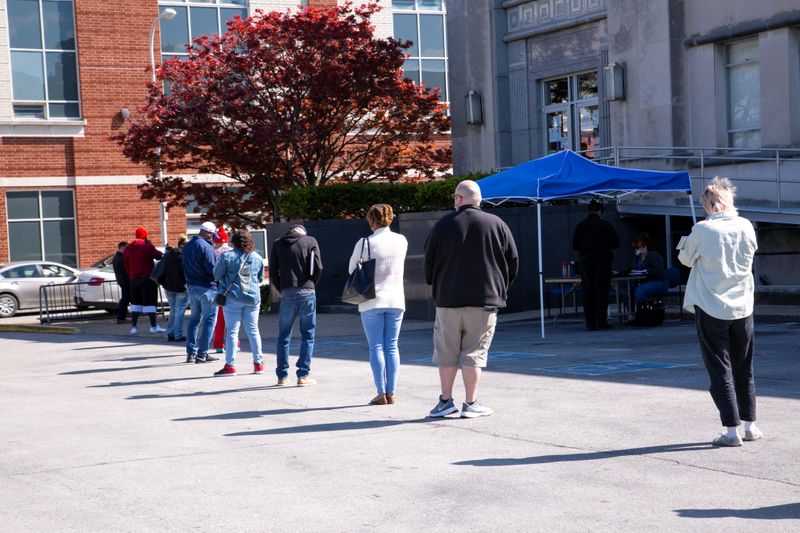(Reuters) - The number of U.S. workers unable to work at some point over the previous four weeks due to the COVID-19 pandemic dropped by more than a million in October, while fewer people reported not looking for jobs because of those health concerns as cases began to fall, a Labor Department survey showed on Friday.
The numbers reflect an economy that is now regaining momentum after a summer in which the Delta variant of the coronavirus dented the economy and renewed uncertainties in the labor market.
Approximately 3.83 million people were unable to work in October or reported reduced hours due to their business either closing entirely or cutting back operations, down from roughly 5.03 million in the prior month, according to the survey, resuming a downward trend that was interrupted by a rise in August.
During the survey period, COVID-19 cases in the United States more than halved from their mid-September peak. The highly transmissible Delta variant now makes up more than 99% of cases.
The number of people who said they did not look for work because of COVID-19 fears also declined to 1.29 million from 1.63 million the prior month, the lowest number since the pandemic began and an encouraging sign for an economy that is struggling with labor shortages.
The figures are derived from an ongoing additional survey of households carried out by the U.S. government that has accompanied the monthly jobs report since the beginning of the pandemic.
Overall, U.S. job growth increased more than expected in October as the headwind from the surge in COVID-19 infections over the summer subsided, the main report showed, reversing two straight months of disappointing gains.

"It's a sigh of relief after the Delta variant dampened employment the past couple of months and now it’s behind us," said David Petrosinelli, a senior trader at InspereX in New York.
The number of people who said they teleworked recently due to the pandemic fell last month to 18.05 million from 20.35 million in September.